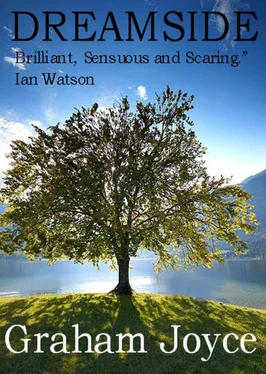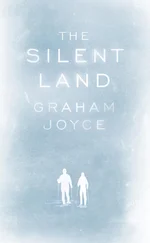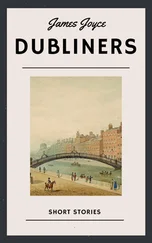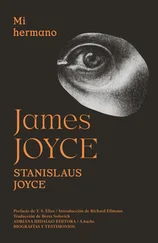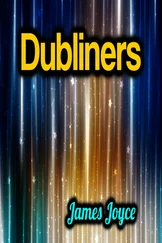Graham Joyce - Dreamside
Здесь есть возможность читать онлайн «Graham Joyce - Dreamside» весь текст электронной книги совершенно бесплатно (целиком полную версию без сокращений). В некоторых случаях можно слушать аудио, скачать через торрент в формате fb2 и присутствует краткое содержание. Год выпуска: 2012, Издательство: G&S Books, Жанр: Фэнтези, Ужасы и Мистика, на английском языке. Описание произведения, (предисловие) а так же отзывы посетителей доступны на портале библиотеки ЛибКат.
- Название:Dreamside
- Автор:
- Издательство:G&S Books
- Жанр:
- Год:2012
- ISBN:нет данных
- Рейтинг книги:5 / 5. Голосов: 1
-
Избранное:Добавить в избранное
- Отзывы:
-
Ваша оценка:
- 100
- 1
- 2
- 3
- 4
- 5
Dreamside: краткое содержание, описание и аннотация
Предлагаем к чтению аннотацию, описание, краткое содержание или предисловие (зависит от того, что написал сам автор книги «Dreamside»). Если вы не нашли необходимую информацию о книге — напишите в комментариях, мы постараемся отыскать её.
explores the mysterious and frightening subject “lucid” dreaming, the ability to control on’e own dreams. This complete version contains a new Afterword by the author.
Review
“Graham Joyce writes the kind of novels we keep hoping to find, but rarely do.”
—Jonathan Carroll
Dreamside — читать онлайн бесплатно полную книгу (весь текст) целиком
Ниже представлен текст книги, разбитый по страницам. Система сохранения места последней прочитанной страницы, позволяет с удобством читать онлайн бесплатно книгу «Dreamside», без необходимости каждый раз заново искать на чём Вы остановились. Поставьте закладку, и сможете в любой момент перейти на страницу, на которой закончили чтение.
Интервал:
Закладка:
This in itself generated serious questions about the type of novel I had written. In 1989, the year I sold it, my publishers not unreasonably wanted to know on what shelves it would sit. Was it a science fiction novel they asked me? Was it Fantasy? Or even Horror, since it has its fair share of creepy moments. Or was it after all a Mainstream novel, since most of the events in the novel fell in the waking, natural world rather than in the dreaming world. All good questions, which I was too inexperienced in the world of publishing to answer. I hadn’t a clue. I wanted it to have a compelling narrative, engaging characters and some psychological insight. I also wanted it touch on the world of the paranormal. All that seemed quite enough to think about.
After 25 years in the business I do of course now realise that these genre divisions mean very little. They are of course important to the bookseller, but that’s all about the market place and not about the book itself. If I’d known then what I now know my answer to those questions every time would be: which of those is selling the most?
For me the most important thing about the book is the leak of the miraculous into the ordinary world; the idea that the marvellous is always closer than we think. I’m fixed on the notion that rationality — wonderful rationality — will take us so far but will never answer everything to our satisfaction; and that the most difficult thing that rationality will ever face is the question of what makes us human. Dreamside set me on a very particular trajectory of novel writing — for a quarter of a century at least — that I didn’t know was in front of me. I still can’t answer the question of what kind of novel this is (or any of the novels that followed). I’m happy to let other people answer for me.
As for Dreamside itself the principle of Lucid Dreaming is somewhat distanced from Fantasy in that there are many people who can dream lucidly and who can control their dreams. At one time quite a lot of scientific research went on into the subject and the most remarkable — and still unexplained — report from that body of research was that Lucid Dreamers could categorically meet up with each other, by pre-arrangement, in some mentalistic universe.
The subjects, interviewed separately after a period of dreaming and without being able to contact each other, successfully confirmed who amongst their experimental group had made the dream rendezvous happen. They were able to identify precisely who from their experimental group had kept their appointments and who hadn’t. And the remarkable thing was that they corroborated each others’ claims exactly. The scientific experiments foundered when the experiment subjects, their extraordinary achievements notwithstanding, were unable to progress their experiences. Research requires a practical pay-off. Not content with the merely astonishing, the funders of this exciting research lost interest. Dreamside speculates on the notion of what might have happened if such an research group had managed to progress the enterprise further.
I don’t like going back and re-reading my past work, though I did so to get this novel ready for E-publication. There are one or two wince-inducing lines and some things I would now do differently. I can’t quite believe I was seduced into using words like tremulousness . That sort of nonsense belongs in the kind of bad novels we have come to call “literary” and all I can say is forgive me the sins and offences of my youth. Other than that the story itself seems to have weathered quite well. Note that it was set in a quite recent time when there were no mobile phones and the idea of the internet was but a dream.
The novel describes techniques for incubating lucid dreaming. I didn’t invent these techniques. Most of them are taken and adapted from some of the research papers I mentioned above. Anyone seriously interested in developing lucidity while dreaming is invited to try them. The idea is to pepper your waking day with conscious references to lucidity, so that when you sleep that same content will find its way into your dream. The “hands” technique is a good place to start. My own experiments were only partially successful. I could reach the point of lucid awareness but I could never sustain the lucid dream: it would hit a “dissolve” point quite early. Perhaps you would have better luck. I should warn you that natural lucid dreamers do report that the experience of false awakening can be disturbing (I called these “repeaters” in the novel). I can’t vouch for the success of the reality checking techniques I offer, which are fictional, though genuine lucid dreamers have reported that hitting a light switch is helpful. If you are dreaming the light tends to come on, but in another room.
Language — speaking it or writing it — is possibly the most conscious thing we can do. On the planet of the human psyche it lives on the well-lit side, whereas dreaming happens on the dark side. That’s why message transmission during lucid dreaming breaks down. In our normal dreams we might think that people speak things to us but they don’t. Not in the normal time-frame of sequential twanging of the vocal chords anyway. We apprehend communication in a radically different way and then treat it as though it were speech because we don’t know any better. But I suspect — and now I’m moving into the realms of speculation — that we also actually accomplish this other form of communication quite regularly during our waking life. Our apprehension of the practice is eclipsed by our capacity to speak, but it manifests regularly in what we call intuition and inter-subjectivity; group-mind and insight; telepathy and thought transference.
I wrote Dreamside before I became a father. The arrival of children easily confirmed for me the existence of telepathy. Any mother who has sat down to dinner only to hear — as if on cue — her baby in the next room wake up and cry will authenticate this. You feed, I feed. It’s so blindingly obvious a feature of human behaviour that I can’t understand why the dalek side of us human beings resists an acceptance of these things. Perhaps there is an evolutionary danger in paying the group-mind too much attention. But as soon as you enter into family life you find it demonstrated over and over.
Dreamside explores this idea of group mind. If the three levels of consciousness are waking, sleeping and dreaming, it operates in a fourth corridor. It represents my first fictional visit to the fourth corridor and although my subsequent novels have been — for good or ill — all rather different, the common thread is the one that runs through this labyrinthine corridor and finds its way into many different chambers. I hope you enjoyed finding your way in; and that that something in this afterword will also bring you back.
Graham Joyce November 2012About the Author
Graham Joyce is a multiple award winning author. He grew up in the mining village of Keresley near Coventry. In 1988 he quit his job as a youth officer and decamped to the Greek island of Lesbos, there to live in a beach shack with a colony of scorpions and to concentrate on writing. He sold his first novel while still in Greece and travelled in the Middle East on the proceeds. He is a winner of The World Fantasy Award; is five-times winner of the British Fantasy Award for Best Novel; is twice winner of the French Grand Prix De L’Imaginaire; and was the winner of the American O Henry short story award in 2009.
His website is: www.grahamjoyce.co.uk. He tweets as Grahamjoycebook
Other Books by Graham Joyce
Dark Sister
House of Lost Dreams
Читать дальшеИнтервал:
Закладка:
Похожие книги на «Dreamside»
Представляем Вашему вниманию похожие книги на «Dreamside» списком для выбора. Мы отобрали схожую по названию и смыслу литературу в надежде предоставить читателям больше вариантов отыскать новые, интересные, ещё непрочитанные произведения.
Обсуждение, отзывы о книге «Dreamside» и просто собственные мнения читателей. Оставьте ваши комментарии, напишите, что Вы думаете о произведении, его смысле или главных героях. Укажите что конкретно понравилось, а что нет, и почему Вы так считаете.
